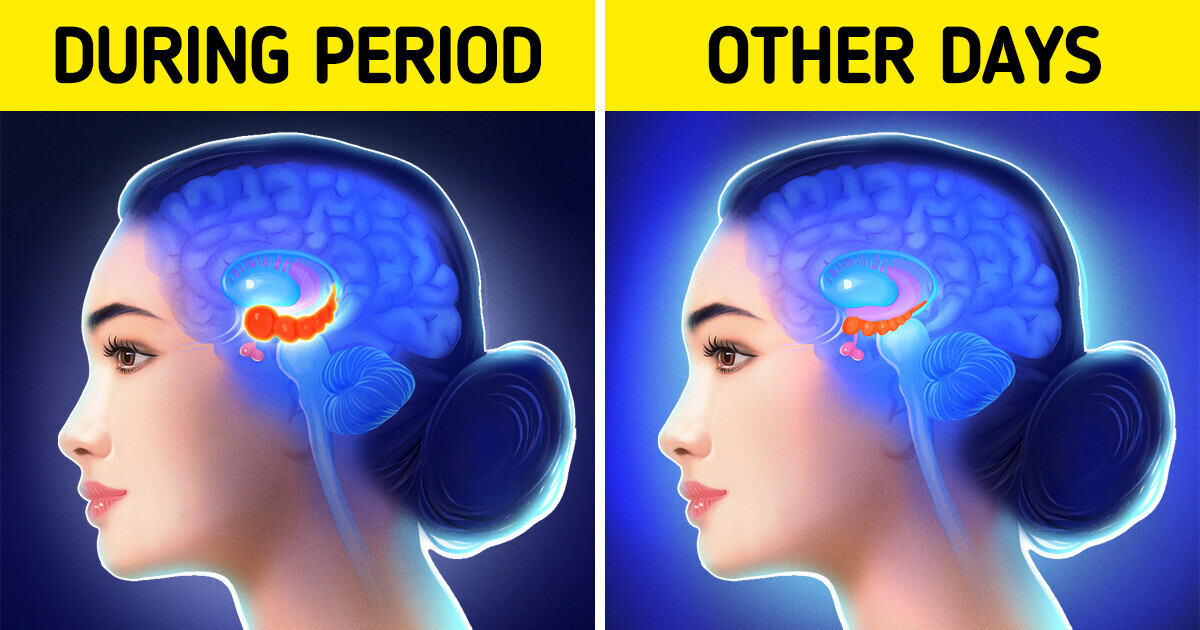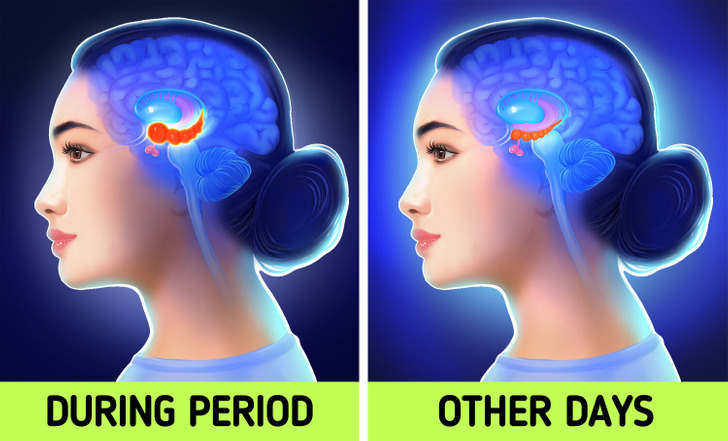20+ Stories About How Rich People Really Live Like


Menstruation is both a boon and a bane, depending on a lot of factors in a woman’s life. From hygiene to pain, and even period stigma that’s common in many cultures, not every woman is comfortable having periods, given levels of pain and other medical issues. That said, new research into menstruation is not only showing menstrual blood to be an invaluable diagnostic tool, but also highlighting the bright side of being on your period. Here are some surprising results.

Most of us view the approaching date of our much-needed menses with dread, given the pain and the discomfort. That said, menstruation has more far-reaching effects than just reproduction. The fluctuation of estrogen and progesterone are key to the menstrual cycle, and they play an important role in a woman’s body. Their regulation takes care of cardiovascular health and bone strength. They also maintain optimal lipid profiles and regulate the production of neurotransmitters, which in turn affect mood.
Once menopause hits, the lower levels of estrogen and progesterone translate into loss of bone mass, and an increased risk of cardiovascular issues. That said, with many women suffering from endometriosis, PCOS and more, painful periods can really take a lot out of anyone. New research into menstruation has brought out some surprisingly positive results, which may make you look at your period a little differently.
Recently, researchers at University College London and the Institute of Sport, Exercise & Health did a study where women were asked to give cognitive tests 14 days apart. They were also quizzed about their mood and symptoms and were put on a period tracker to know the exact start and end dates of their period, respectively.
The results came out surprising, to say the least. Most participants admitted to feeling worse during their period, which made them assume that they also performed worse. In fact, the opposite was true.
The tests were also kept deliberately simple. One test showed the participants smiling or winking faces, and they were asked to press the space bar only when they saw the smiley face. This tested inhibition, attention, reaction time, and accuracy. In another test, the participants were asked to identify mirror images to test their spatial cognition, as in their ability to visualize a task.
The women who took the test while on their period had faster reaction times and also made fewer errors. Their reaction times were slower during the luteal phase of the menstrual cycle, which starts after ovulation (the release of the egg) and leads to the start of your period.
The same study also suggests that women may be better at playing sports. The women on their period felt physically worse and again assumed that they would not do well, but as per BBC, they were 12% faster at ball-moving tasks and 25% more likely to pass a test of their anticipation skills.
The same performance dropped during the luteal phase. The researchers felt this could be why women playing contact sports appeared injury-prone at that time.
During the luteal phase, hormones fluctuate in reverse. There is a drop in estrogen, which stimulates parts of the brain. On the flip side, increased levels of progesterone inhibit cognitive function and may slow reaction times. Once you get your period, these changes start to reverse.
Lead author Dr. Flamina Ronca said, “What we’re seeing is that the reaction times are a bit slower in the luteal phase, and that fits with the fact that we’re seeing a greater incidence of injuries. We wondered if injuries could be a result of a change in athletes’ timing of movements throughout the cycle.”
Ultimately, she and the other researchers hoped that the study would help women who play contact sports adapt their on-field strategies around their menstrual cycle, helping them avoid injuries. She further felt that even though women are feeling worse during their period, they can step it up on a work level, and achieve more.

There is another study that shows women’s brain undergo a change during their period. Along with the rise in estrogen levels, the hippocampus also grows in size. This change, in turn, affects women’s behavior and mood.
That said, more research is needed to make all this worldwide knowledge, and women who have debilitating pain during their period may not be able to simply “step it up”. Menstruation remains somewhat under-researched, which is why studies like these ignite hope and bring about surprising results.
As human beings evolve, menstruation might be changing as well, demanding more research. Like this study shows that kids are now getting their period earlier than before, and explains the reasons why.











